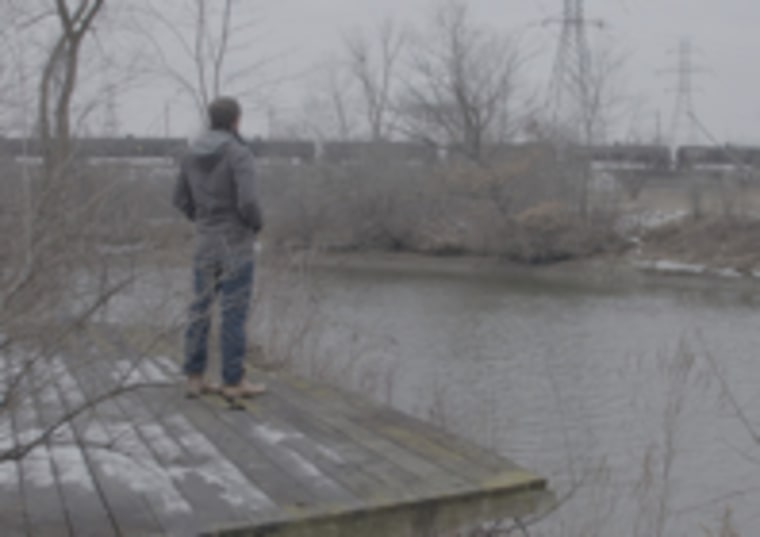When director Cullen Hoback began work on his latest documentary, he hoped to find out why it took months for local officials in West Virginia to investigate chemically contaminated tap water.
“Three hundred thousand people were exposed and there was very little scientific literature available —virtually none,” Hoback told Chuck Todd on “1947: The Meet the Press Podcast.”
“Imagine if you woke up and your entire house smelled of anise or licorice,” Hoback said. ““The smell was so strong that everyone started complaining.”
But his initial investigation into chemically polluted drinking water in West Virginia soon expanded into a far-reaching analysis of local regulators’ inability, and in some cases unwillingness, to safeguard the people and resources they were entrusted to protect.
Hoback’s new documentary film “What Lies Upstream” spotlights the work and culture of environmental regulators in West Virginia after news broke in 2014 of the contamination of the Elk River, tainting the drinking water supply for nearly half the state.
The incident preceded the pollution scandal in Flint, Michigan, another scene where a preventable catastrophe wreaked havoc on the lives of ordinary Americans.
“The culture of coal has an impact, the culture of chemical creation has an impact, and industry has an impact just like it did in Flint for a long time, just like it did in a lot of these Rust Belt towns and in Appalachia,” Hoback said. “You had an industry that was dominant for a really long time and there are people who are holding on to the last jobs that remain in those areas.”
Hoback pins accountability on the regulators who willingly allowed coal companies to pollute the environment and actively facilitated their actions.
“There’s an intentional blindness that happened for a long time and then this crisis is just a symptom of that blindness.”
Even after legislation was passed in 2014 to tighten regulations, Hoback said he witnessed legislators and lobbyists hacking away at the law before his eyes.
“When the public’s attention tilted, when the media’s attention was no longer on West Virginia, they gutted all the policy,” Hoback said. “They did it right in front of me on camera.”
Hoback said his film is a reminder of how important accountability and oversight are at the local level, where policies can impact lives directly
“When it comes to regulators not doing their jobs, it’s political interference in science, so there’s no firewall between politics and science. There needs to be some degree of independent jurisdiction there,” Hoback told Todd. “There needs to be accountability, someone watching the watchers.”
